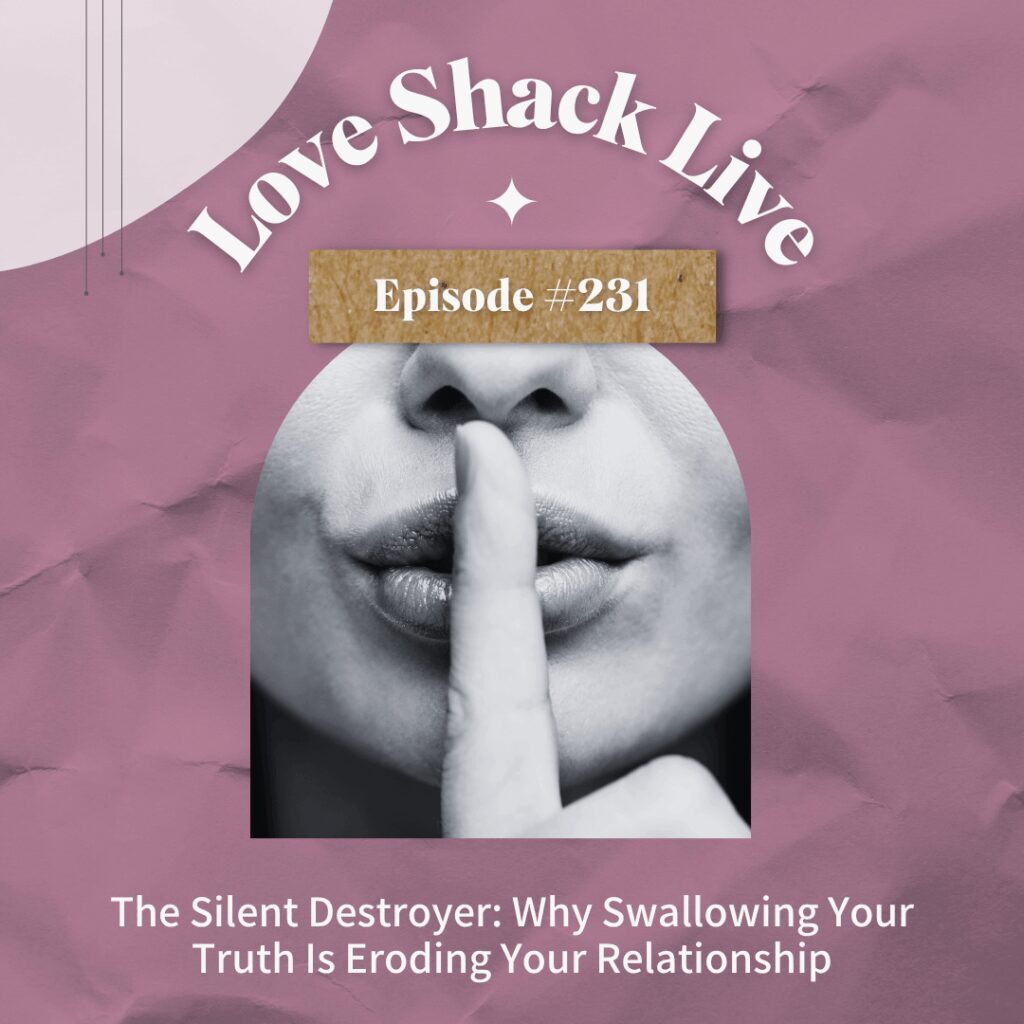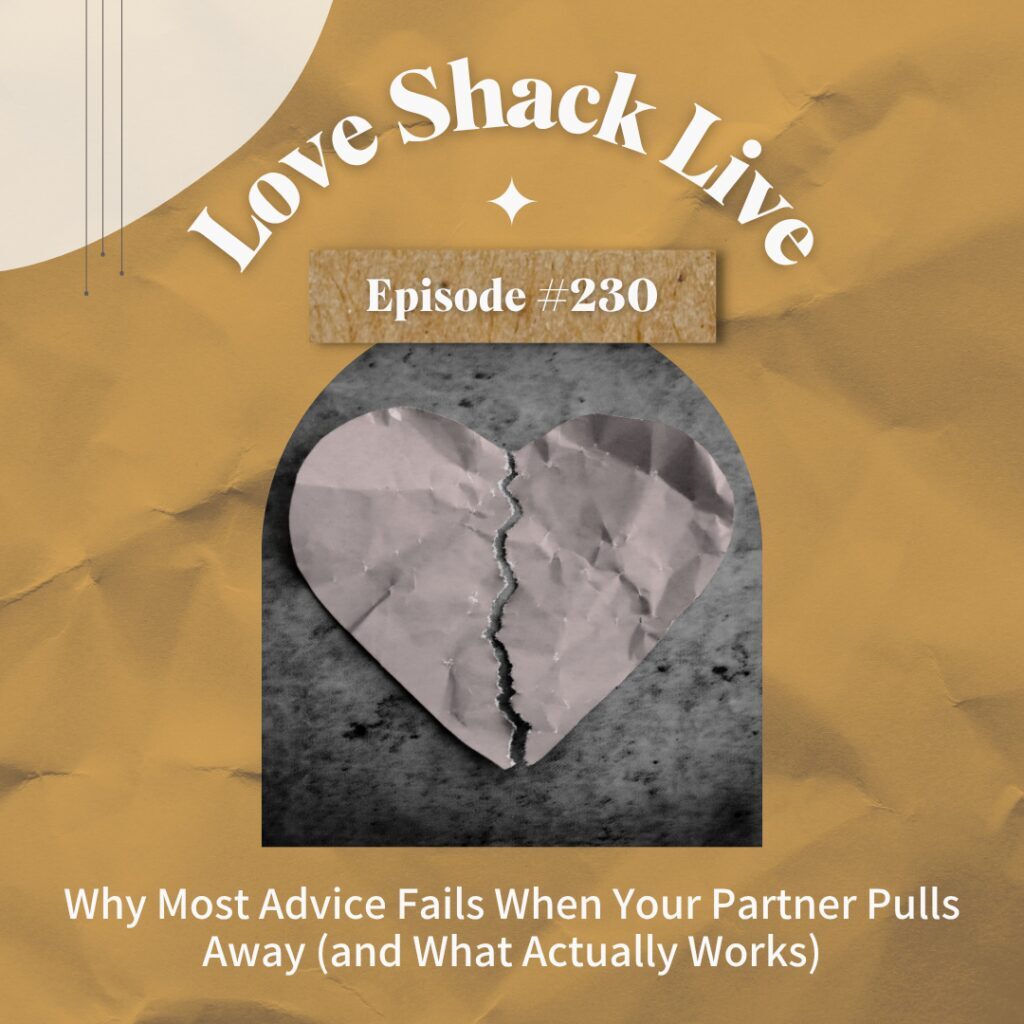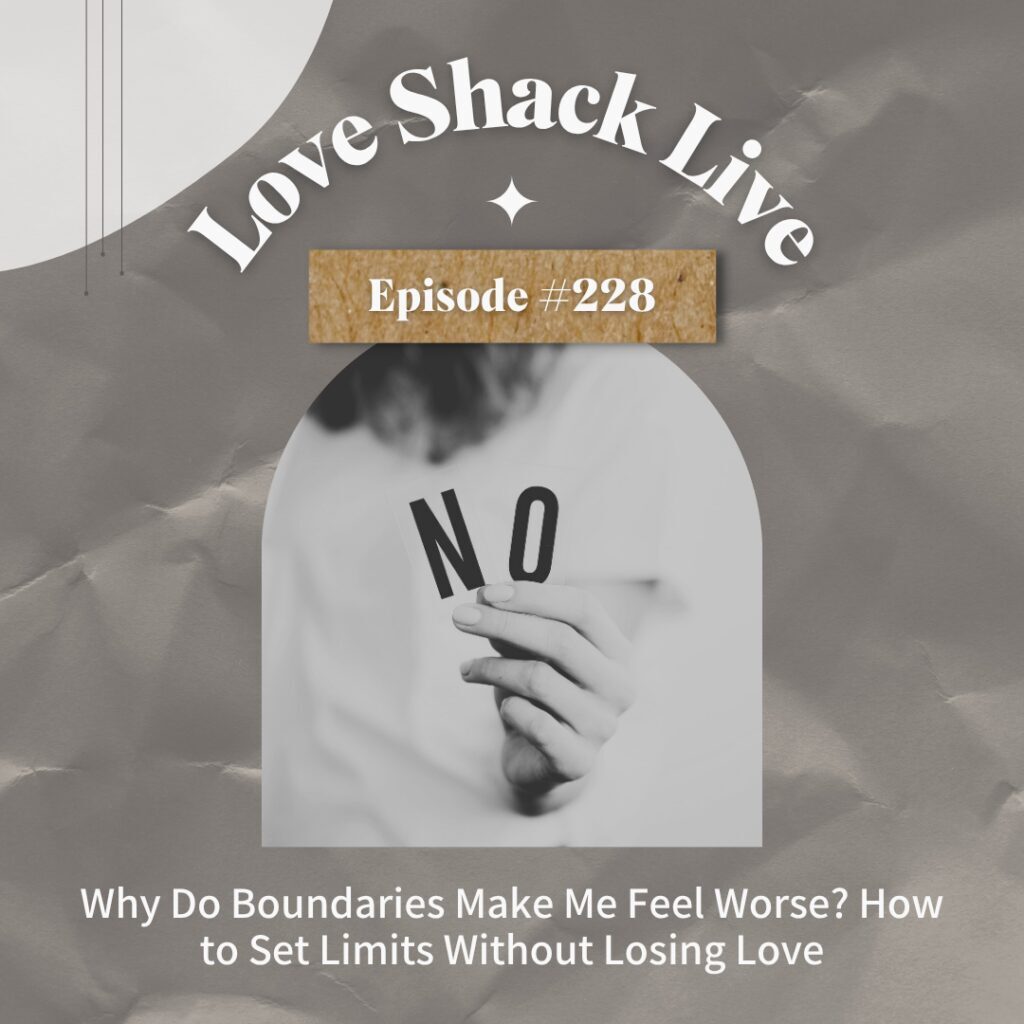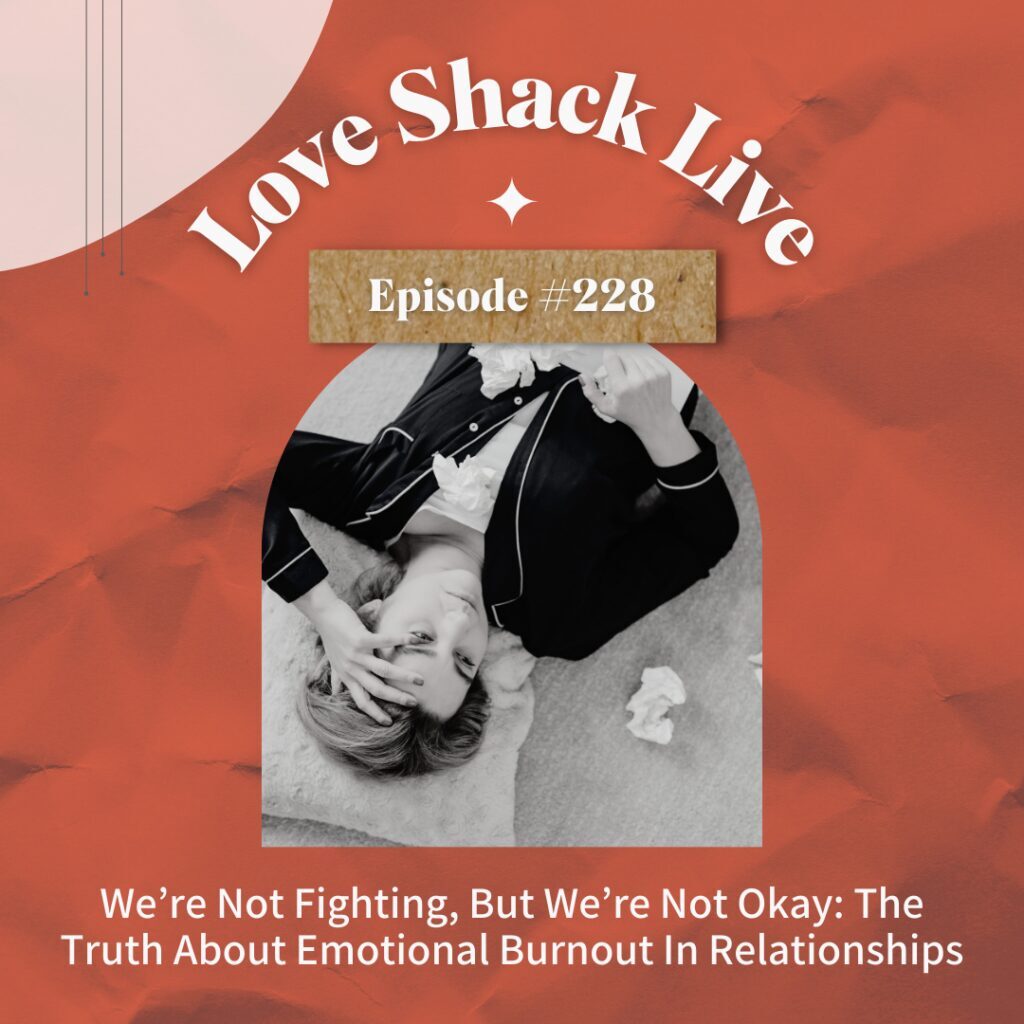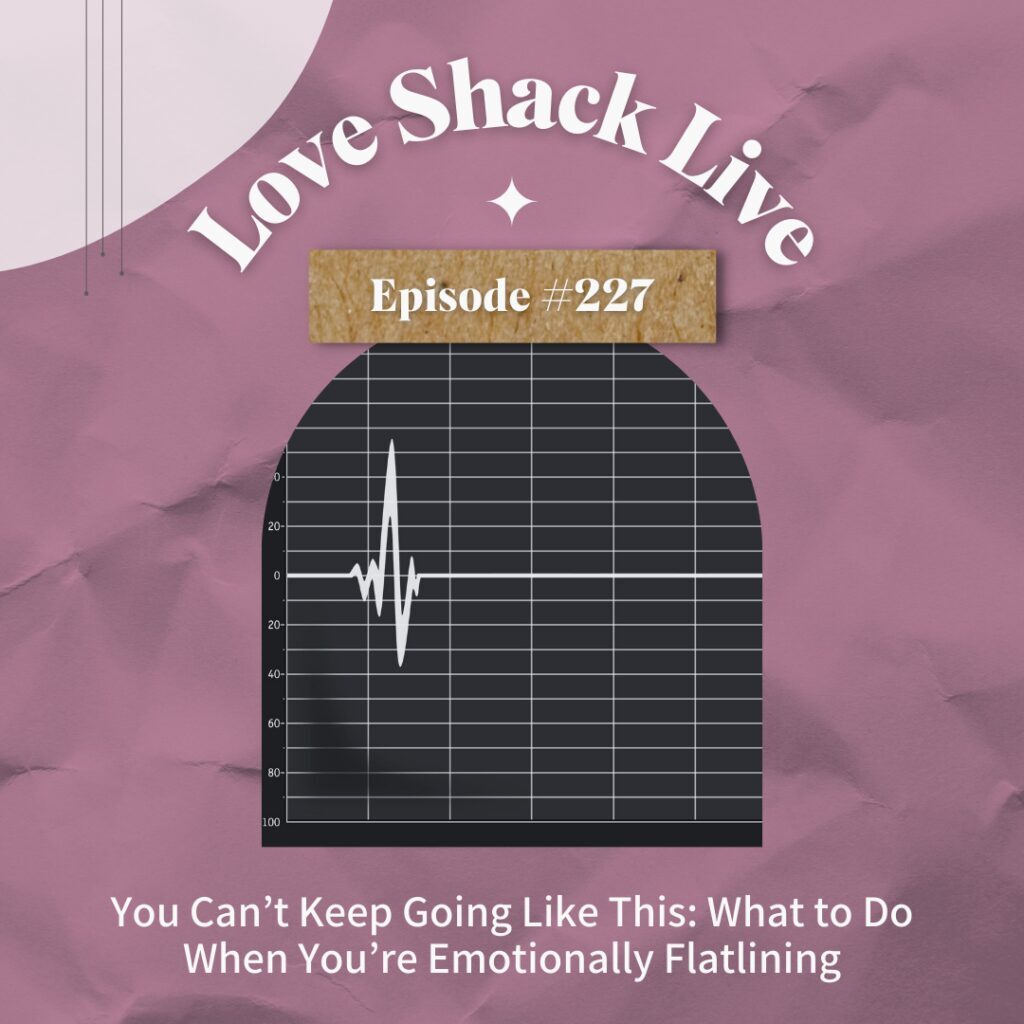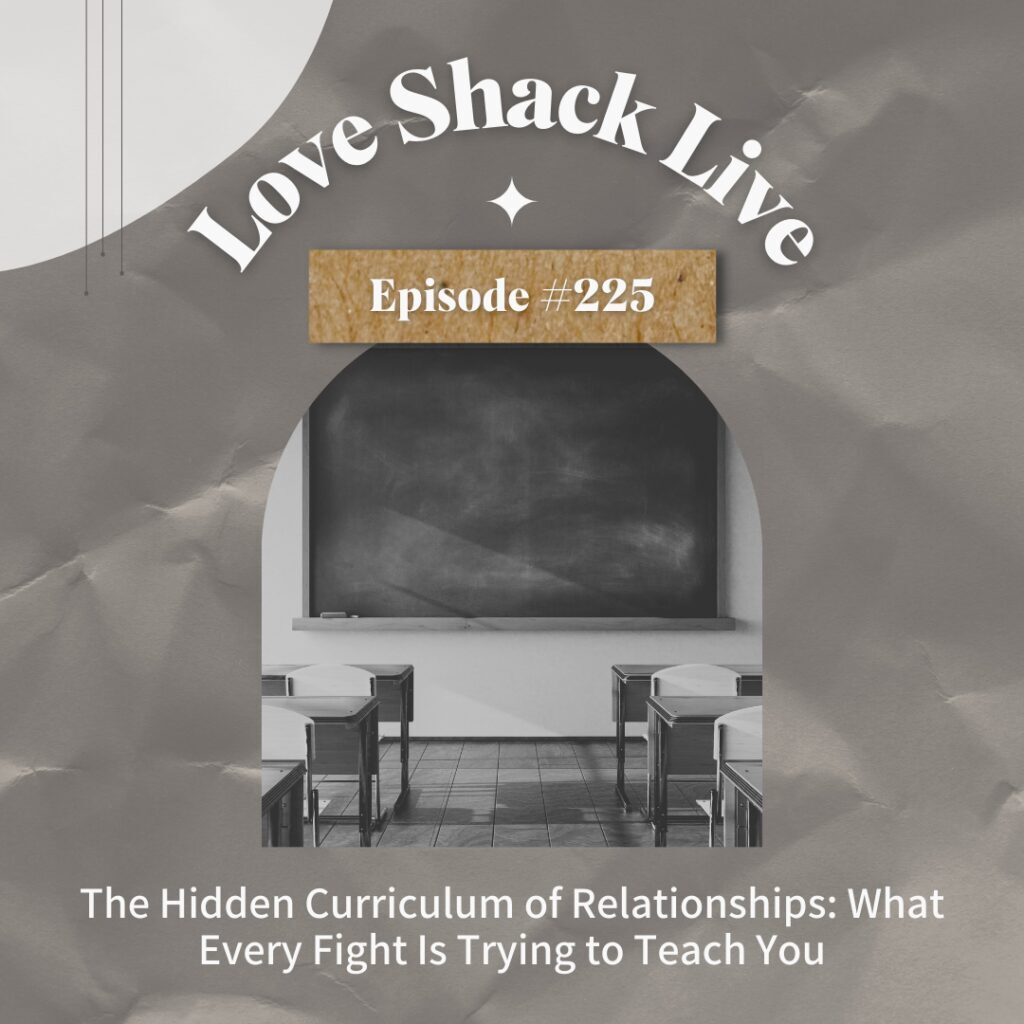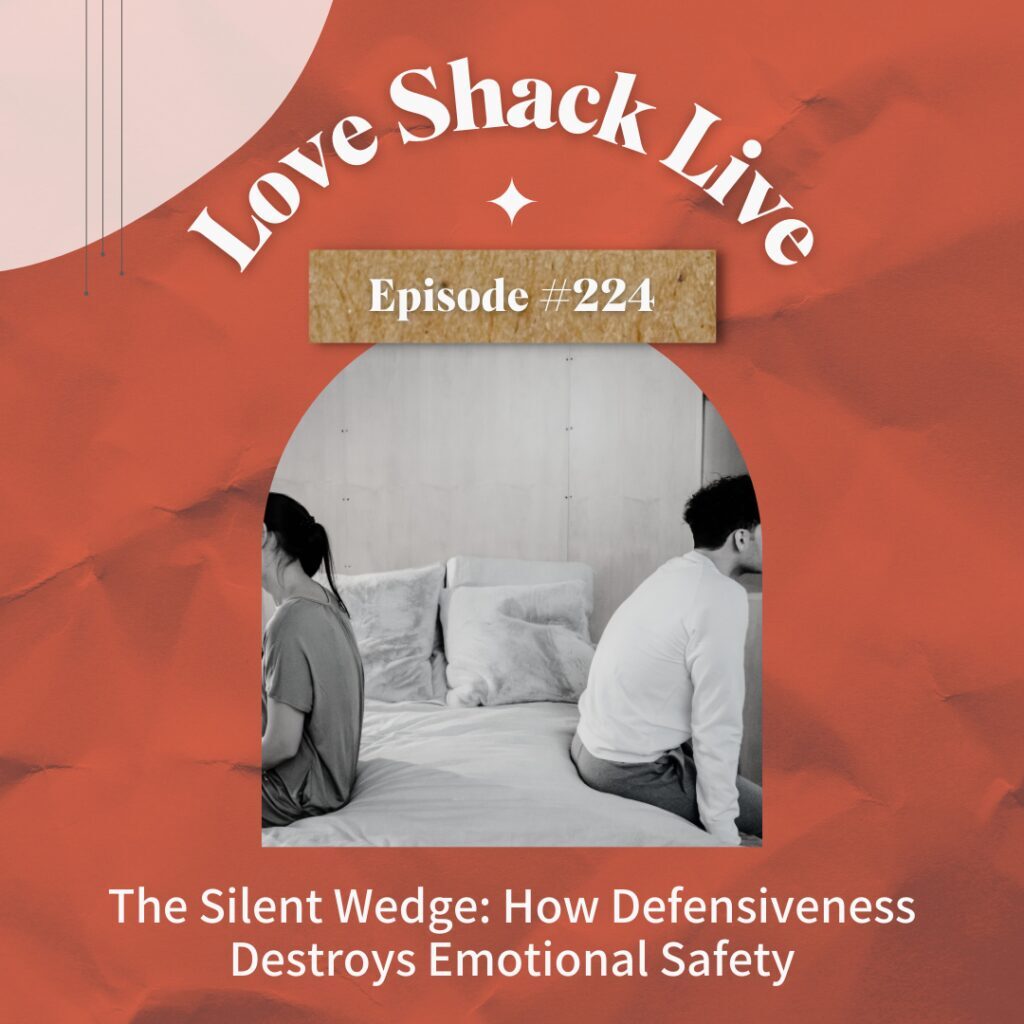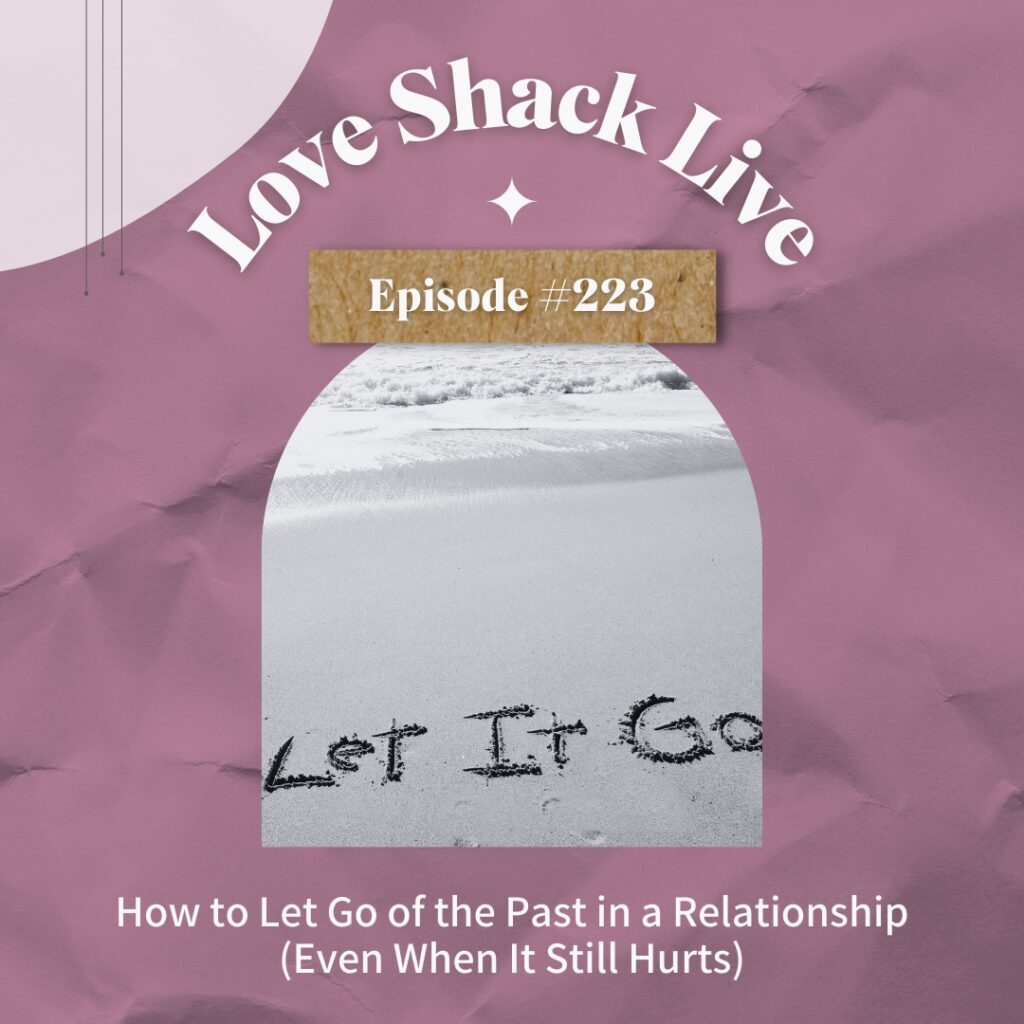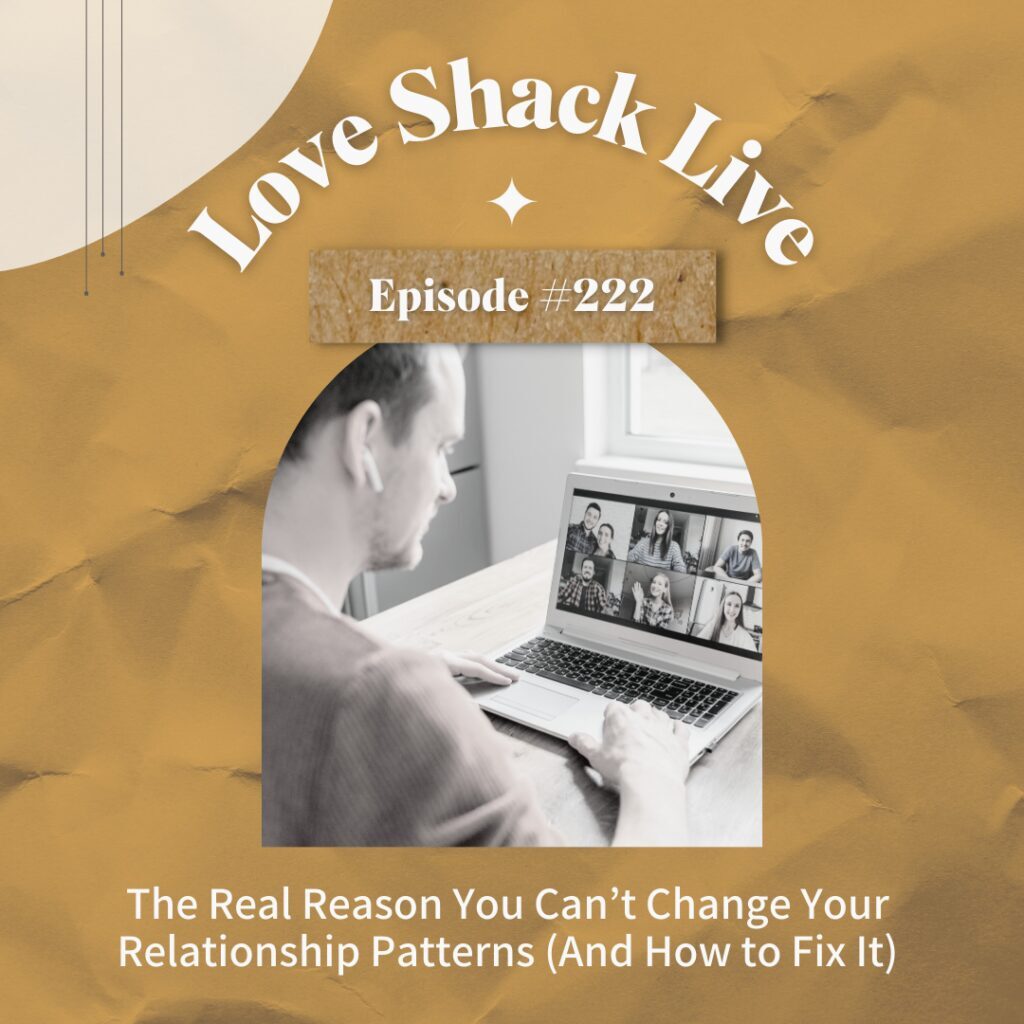#224: The Silent Wedge: How Defensiveness Destroys Emotional Safety
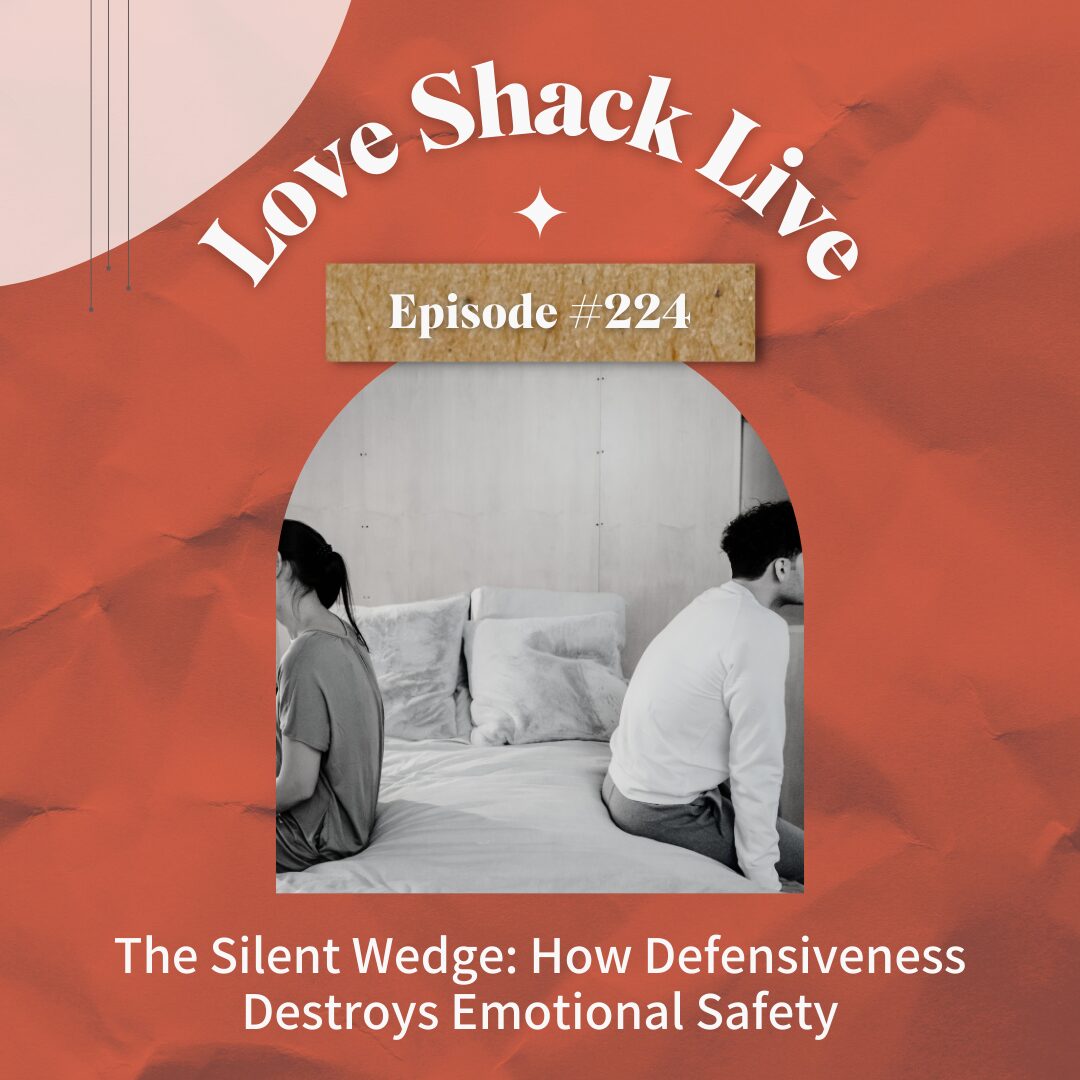
“The biggest communication problem is we don’t listen to understand. We listen to reply.” — Anonymous
Ever feel like you’re speaking two different languages with your partner?
You say one thing.
They hear another.
And somehow, the more you try to explain, the worse it gets.
This isn’t just miscommunication, it’s the quiet work of defensiveness. A hidden force that scrambles your words, shuts down connection, and slowly turns even love into a battlefield.
Today, we’re going to break it wide open: what defensiveness really is, how it damages your relationships, and what you can do, starting now, to take the armor off.
Understanding Defensiveness
Dr. John Gottman—who can predict divorce with over 90% accuracy—calls defensiveness one of the biggest red flags in a relationship.
It’s not proof that you’re broken. It’s proof that emotional safety is leaking out—and that communication is suffocating in the process.
Left unchecked, defensiveness builds invisible walls. Walls that eventually feel impossible to climb.
Understanding Defensiveness
Dr. John Gottman, who can predict divorce with over 90% accuracy, calls defensiveness one of the biggest red flags in a relationship.
It’s not proof that you’re broken. It’s proof that emotional safety is leaking out, and that communication is suffocating in the process.
Left unchecked, defensiveness builds invisible walls. Walls that eventually feel impossible to climb.
The Separation Survival Kit
Feeling lost after your partner asked for space? The Separation Survival Kit has everything you need to regain your footing. Packed with practical tips and guided exercises, it’s designed to help you navigate the uncertainty and make empowered decisions—without the spiral of overthinking.
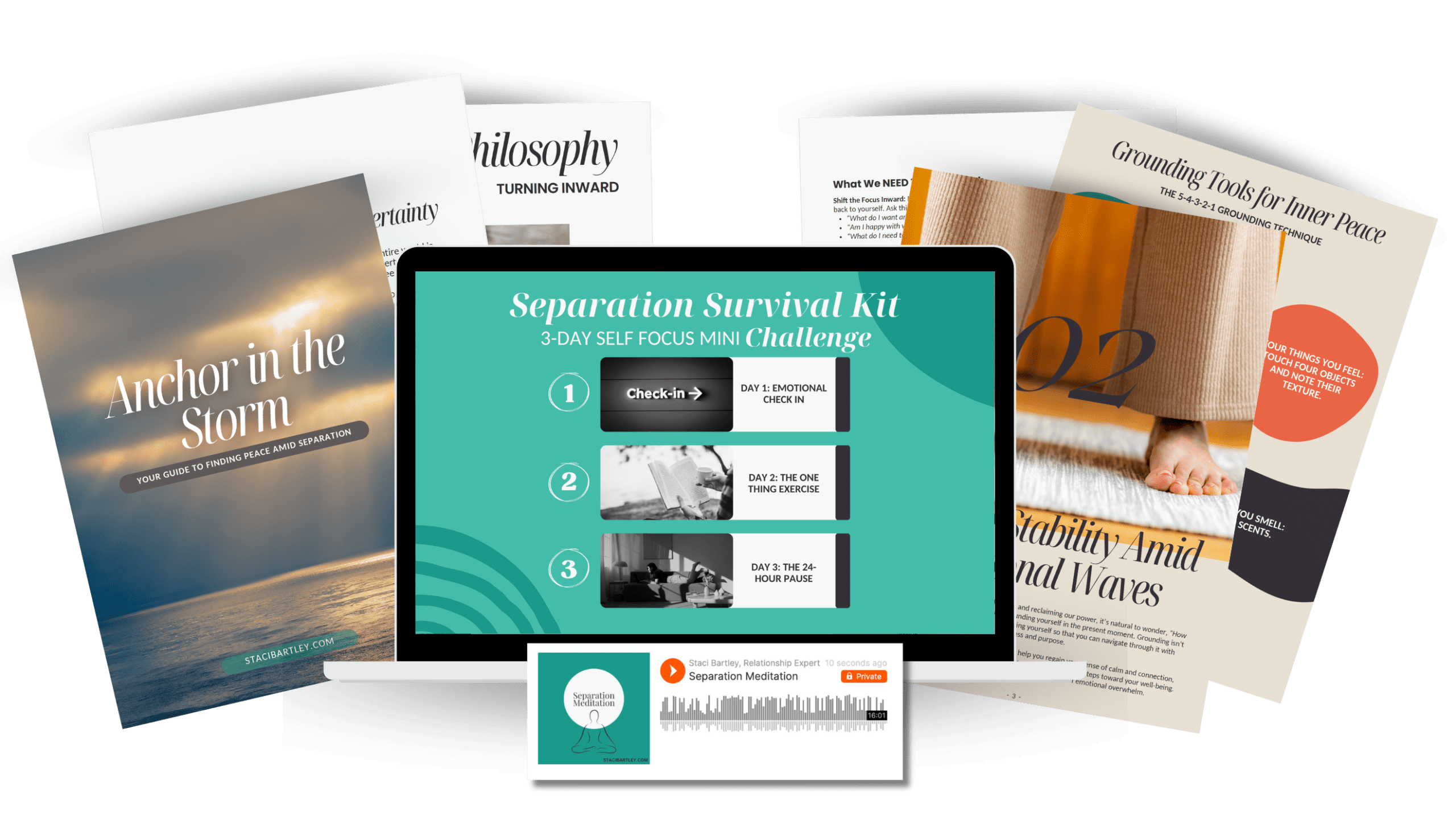
Why We Get Defensive
Spoiler alert: we all get defensive. Every single one of us.
It’s human nature.
When we feel hurt, exposed, or misunderstood, our instinct is to protect ourselves.
Sometimes that looks like twisting the story.
Sometimes it’s attacking first.
Other times it’s shutting down and pretending not to care.
Almost always, it happens in a flash, before we even realize it’s happening.
At its core?
Defensiveness is our attempt to escape emotional discomfort. Fast.
The Impact of Defensiveness
The real damage isn’t always visible right away.
Defensiveness chips away at trust. It creates unspoken distance. It convinces us that we can’t be fully ourselves, or fully honest, without risking a battle.
And here’s the kicker: it doesn’t just erode our relationships with others. It erodes our relationship with ourselves, too.
Over time, shame creeps in. Guilt festers. We start defending not just our words, but our own ability to be seen, heard, and loved.
And eventually, what once felt easy now feels exhausting.
How to Drop the Armor
If we want real connection, we have to be willing to get curious instead of defensive.
What does that actually look like?
It looks like slowing down.
It looks like asking questions instead of making accusations.
It looks like letting yourself sit with discomfort, without immediately trying to fix it, fight it, or run from it.
In short?
It’s about choosing understanding over self-protection. Even when it’s hard.
Practical Techniques to Defuse Defensiveness
Let’s get specific. Here’s how to start:
1. Catch Yourself in the Moment
Pause. Breathe. Notice.
Before you react, ask yourself: What am I feeling right now? Fear? Embarrassment? Frustration?
Name it. Own it. Then decide how you want to respond.
2. Communicate Where You’re At
Say it out loud:
“I’m feeling overwhelmed. I want to have this conversation, but I need a minute to gather myself.”
You don’t have to be perfect. You just have to be honest.
3. Regulate Before You React
Sometimes the best next step isn’t saying anything at all.
It’s taking a walk.
Turning on your favorite song.
Writing a messy, unfiltered journal entry.
Give yourself permission to self-soothe before diving back in.
4. Protect Emotional Safety Like It’s Gold
Think of emotional safety like a balloon:
Each kind, curious interaction adds a breath of air.
Each defensive moment pops a hole in it.
It takes dozens of good moments to build it—and only one sharp word to deflate it.
Protect it fiercely.
How It Shows Up at Different Stages of Love
If you’re single or dating:
Stay curious. Don’t armor up too soon. The point isn’t to impress or defend—it’s to understand and be understood.
If you’re separated or in limbo:
Defensiveness keeps the door slammed shut.
Practice self-regulation. Make your first move a peace offering, not a rebuttal.
If you’re trying to repair or rebuild:
You’re probably defending the old you, not the new future you could create.
Vulnerability isn’t weakness here—it’s your secret weapon.
The Bottom Line
Defensiveness isn’t the enemy.
Unacknowledged defensiveness is.
By noticing it, pausing it, and choosing a different path, you can transform your relationships, starting with the one you have with yourself.
Not perfectly.
Not all at once.
But steadily. Bravely. One conversation at a time.
Rebuild the Future You Once Imagined
If this post made you squirm in a good way, it’s a sign you’re ready to practice a better way forward.
? Grab your copy of the Space and Separation Communication Playbook for an even deeper dive, including a self-assessment quiz to help you spot your go-to defensive patterns (and what to do instead).
Or, if you’re ready to go deeper, join our Better Love Club and get the guidance and structure to rebuild trust, connection, and shared dreams.
Because love isn’t luck.
It’s a skill. A practice. A choice.
And you don’t have to do it alone.
Resources mentioned in this episode:
Has your partner asked for space? Don’t panic—it’s not the end. It’s an opportunity to reflect, rebuild, and reconnect.
- Download the Separation Survival Kit: Your essential guide to managing emotional distance, staying grounded, and creating clarity during this uncertain time. Get it here: https://stacibartley.com/separation-survival-kit/optin
- Start Your Self-Paced 30-Day Roadmap: This flexible, step-by-step guide is designed to help you navigate emotional distance, honor your partner’s need for space, and rebuild trust—on your own terms and timeline. Learn more and get started today: https://stacibartley.com/self-paced/30-day-roadmap
- Discover All Our Programs: From expert mentorship to proven strategies, find the perfect fit to support your relationship journey. Explore here: https://stacibartley.com/programs/index/
- Exclusive for Podcast Listeners: Use the code LOVESHACK15 at checkout to unlock your special discount!
Take this moment as a chance to grow—both individually and together. ❤️

